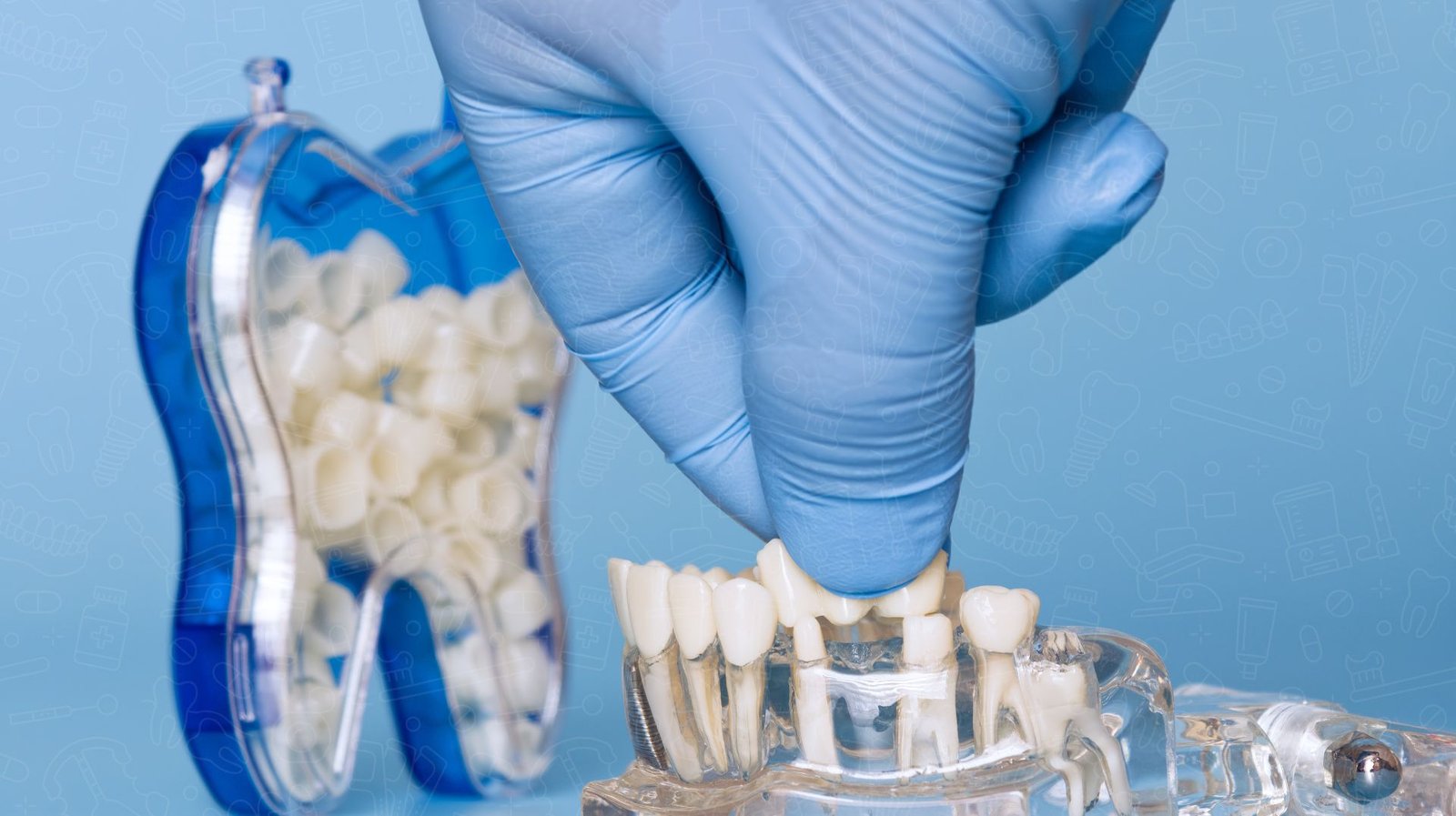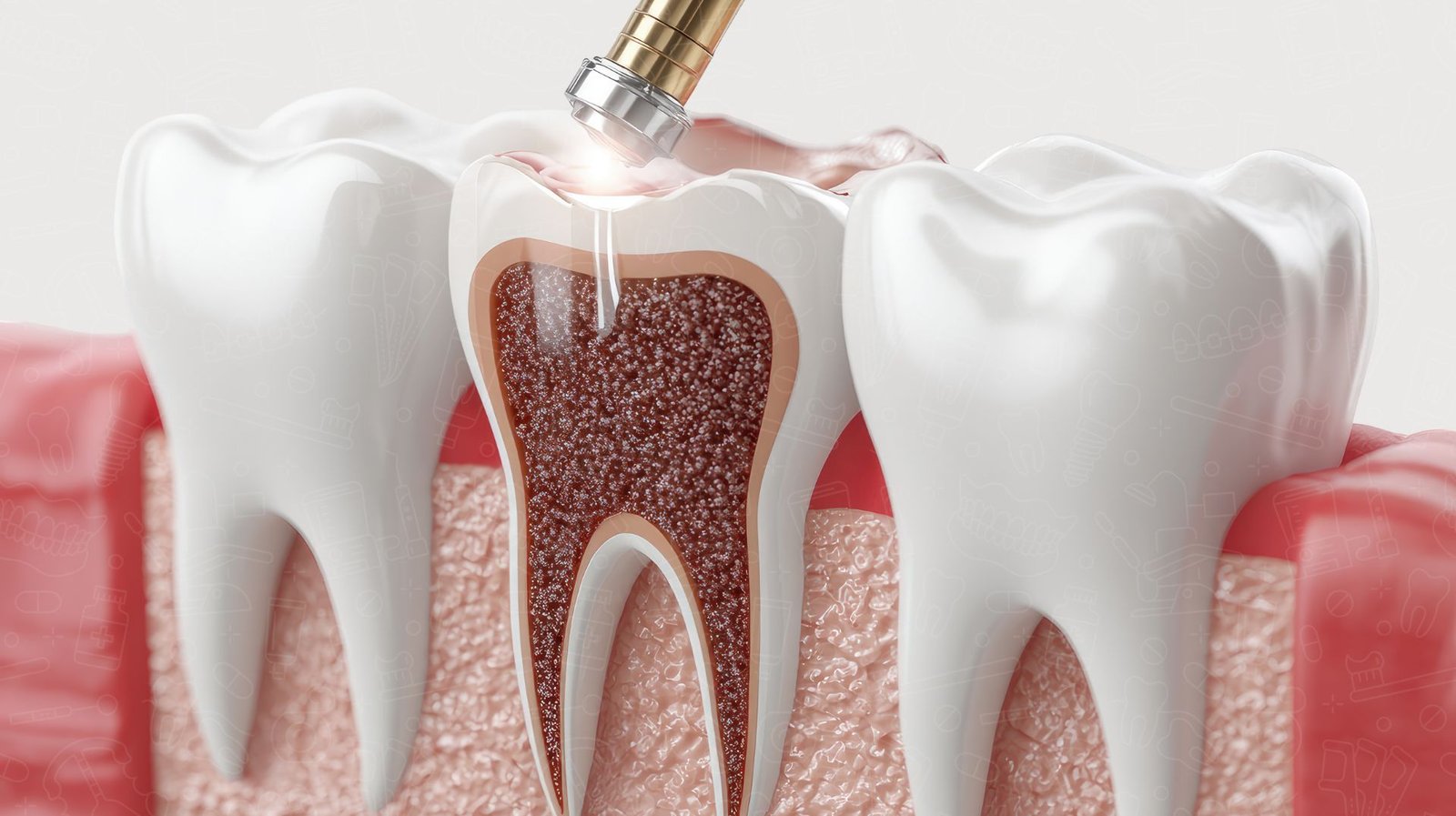Introduction to Dental Crown Benefits and Care
Overview of Dental Crowns
Dental crowns are custom-made caps designed to cover and protect a damaged or weakened tooth, offering numerous dental crown benefits and care advantages. They restore the tooth’s shape, size, strength, and function, making them a crucial tool in restorative and cosmetic dentistry. Crowns are commonly used to repair teeth that are decayed, cracked, or worn down, providing long-term durability when combined with proper dental crown benefits and care practices. Additionally, they are often placed after root canal treatments or atop dental implants, seamlessly blending with natural teeth to enhance both functionality and appearance. By understanding dental crown benefits and care, patients can maximize their crowns’ effectiveness and longevity.
Purpose of the Topic
Understanding the dental crown benefits and care is crucial for patients who want to protect their investment in oral health. Dental crowns not only improve chewing and speaking but also enhance aesthetics by covering discolored or misshapen teeth. This guide highlights the long-term advantages of dental crowns and provides essential care tips to maintain their durability and appearance. With proper maintenance, dental crowns can offer lasting protection and significantly boost confidence by creating a healthy, natural-looking smile.
Understanding Dental Crowns
What Are Dental Crowns?
Dental crowns are custom-made caps that cover a tooth to restore its shape, size, strength, and appearance. These crowns are designed to mimic the natural structure of teeth and are bonded securely in place. Commonly crafted from materials like porcelain, zirconia, metal, or ceramic, dental crowns offer durability and a seamless blend with surrounding teeth. Each material provides specific benefits, such as the aesthetic appeal of porcelain, the strength of zirconia, or the affordability of metal crowns.
Why Are Dental Crowns Needed?
Dental crowns serve both functional and cosmetic purposes. They are often used to repair damaged or decayed teeth that can no longer support fillings. After root canal treatments, crowns protect and reinforce the tooth’s structure. Crowns also enhance the appearance of discolored, misshapen, or worn-down teeth, making them an excellent solution for improving smiles. Additionally, they support dental bridges and complete dental implants, ensuring proper oral functionality.
Understanding the dental crown benefits and care helps patients appreciate their role in preserving oral health while achieving long-lasting results. By addressing both structural and aesthetic concerns, dental crowns are a versatile solution for a wide range of dental issues.
Dental Crown Benefits and Care
Restoring Tooth Functionality
One of the key dental crown benefits is restoring functionality to compromised teeth. Crowns strengthen weakened or cracked teeth, preventing further damage. They also restore proper chewing and biting efficiency, allowing patients to eat and speak comfortably without discomfort or worry.
Aesthetic Enhancement
Dental crowns dramatically improve the appearance of teeth that are discolored, misshapen, or damaged. Materials like porcelain and zirconia closely mimic natural tooth enamel, creating a seamless and natural-looking smile. Crowns are especially beneficial for visible teeth, enhancing both functionality and aesthetics.
Durability and Longevity
Dental crowns provide long-lasting protection against future damage. High-quality materials such as zirconia and metal ensure durability, often lasting over a decade with proper care. Crowns act as a protective shield, safeguarding the underlying tooth from decay, cracks, or further wear.
Versatility
Crowns are incredibly versatile. They are used to cap teeth after root canal therapy, complete dental implants, or anchor dental bridges, ensuring comprehensive oral restoration.
Improved Confidence
A restored smile not only improves oral health but also boosts self-esteem. Patients who receive dental crowns often feel more confident in their appearance, enhancing their quality of life.
Understanding dental crown benefits and care highlights why crowns are a trusted solution for protecting and enhancing teeth while delivering a natural, confident smile.
Dental Crown Benefits and Care Tips
Proper maintenance is essential to maximize the dental crown benefits and care and ensure their longevity.
Daily Oral Hygiene
Brushing twice daily with non-abrasive toothpaste is crucial to keep the crown and surrounding teeth clean. Flossing gently around the crown helps remove plaque and debris, preventing gum irritation and tooth decay.
Dietary Recommendations
Avoid sticky or hard foods, like caramel, nuts, or ice, as they can loosen or damage the crown. Limiting sugary foods reduces the risk of decay around the crowned tooth. Opt for tooth-friendly options, including fruits, vegetables, and dairy, to support overall oral health.
Avoiding Harmful Habits
Protect your crowns by avoiding habits such as grinding, clenching, or using teeth to open packages. For individuals with bruxism (teeth grinding), wearing a night guard is highly recommended to prevent unnecessary pressure on the crown.
Regular Dental Check-Ups
Routine dental visits are essential for professional cleanings and to monitor the crown’s condition. Dentists can detect early signs of wear or potential issues, ensuring timely interventions to prolong the crown’s lifespan.
By following these dental crown care tips, patients can enjoy the functional and aesthetic benefits of their crowns while maintaining a healthy smile.
Addressing Common Concerns About Dental Crowns
Longevity
A key part of understanding dental crown benefits and care is knowing their expected lifespan. On average, porcelain and ceramic crowns last 10-15 years, while zirconia and metal crowns can last up to 20 years or more. Factors such as the material, consistent oral hygiene practices, and habits like grinding or clenching greatly influence durability. Proper maintenance, which is central to dental crown benefits and care, significantly extends the life of crowns, ensuring long-term protection and functionality. By prioritizing dental crown benefits and care, patients can enjoy durable, reliable restorations that preserve their oral health and enhance their smile.
Sensitivity and Discomfort
Temporary sensitivity after crown placement is common as the tooth adjusts to the restoration. This discomfort usually resolves within a few days. Using toothpaste for sensitive teeth and avoiding extreme temperatures in food or drinks can help manage this sensitivity. If the issue persists, consult your dentist to ensure proper crown fit.
What to Do If a Crown is Damaged
If a crown becomes loose, chipped, or damaged, it’s crucial to contact your dentist immediately. Avoid chewing on the affected side and refrain from consuming hard or sticky foods. Damaged crowns should be repaired or replaced promptly to prevent further complications, such as tooth decay or gum irritation.
Proactive care and addressing concerns promptly are essential for maximizing the benefits of dental crowns and maintaining a healthy smile.
Comparing Dental Crowns to Other Restorative Options
Dental Crowns vs. Fillings
While fillings are suitable for small cavities or minor tooth damage, crowns provide superior protection for severely weakened or cracked teeth. Fillings restore the damaged portion, but crowns encase the entire tooth, offering enhanced strength and durability. For extensive damage, a crown is the better choice, preventing further decay and ensuring long-term functionality.
Dental Crowns vs. Veneers
Crowns and veneers serve different purposes. Crowns are used to restore both function and aesthetics by covering the entire tooth, making them ideal for severely damaged or decayed teeth. Veneers, on the other hand, are thin shells placed on the front surface of teeth for cosmetic improvements, such as covering discoloration or minor misalignments. If structural reinforcement is needed, crowns are the preferred option.
Dental Crowns vs. Implants
Crowns and implants often work together for tooth replacement. Implants replace the tooth root, providing a stable foundation, while the crown restores the visible part of the tooth. In cases where the natural tooth can be preserved, a crown alone suffices. For missing teeth, the combination of implants and crowns ensures complete restoration.
Understanding these comparisons highlights the dental crown benefits and care, helping patients choose the most appropriate solution for their oral health needs.
Conclusion
Dental crowns are a versatile solution that significantly enhance oral health and aesthetics. They restore functionality by strengthening weakened or damaged teeth, improve the appearance of discolored or misshapen teeth, and provide long-term durability when properly maintained. Whether used for tooth restoration, post-root canal protection, or aesthetic enhancement, crowns deliver a seamless blend of strength and beauty. Consistent oral hygiene and regular dental check-ups are essential for maximizing the lifespan of crowns.
To fully reap the dental crown benefits and care, consulting with a dentist is crucial. A professional evaluation ensures the right crown material is selected based on individual dental needs, lifestyle, and budget. Personalized guidance also helps prevent potential issues and supports effective dental crown benefits and care practices.
Final Thoughts
Understanding dental crown benefits and care highlights why crowns are a worthwhile investment for oral health and aesthetics. Dental crowns provide durable, natural-looking solutions that restore functionality and boost confidence. With proper care, including good oral hygiene and regular dental check-ups, crowns can offer long-lasting protection and maintain their appearance. Seeking professional advice ensures personalized care, helping patients maximize the benefits of their dental crowns and achieve a healthy, beautiful smile for years to come.





